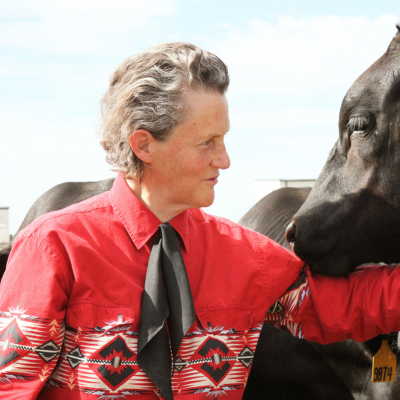
Leaders, Thinkers, Scientists and Artists with Disabilities
When instructional materials and learning environments are accessible, students with disabilities have the opportunity to thrive. Accessibility in higher education is not just about compliance — it’s about cultivating the next generation of leaders, thinkers, scientists and artists who will shape our society.
Temple Grandin

Innovating Through Autism
Temple Grandin, an animal scientist who is autistic, turned her way of thinking into innovations that revolutionized livestock handling. She earned her Ph.D. in Animal Science at the University of Illinois and became a professor at Colorado State University. Grandin’s humane designs for livestock facilities are now used worldwide, and she is a leading advocate for autism awareness. Her success shows how accessible education nurtures diverse thinkers whose insights improve industries and society.
Amy Bower
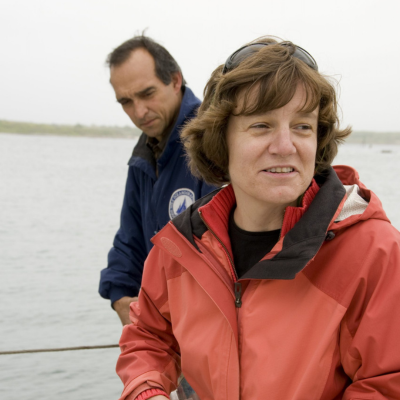
Mapping the Oceans Without Sight
Oceanographer Amy Bower lost her vision due to macular degeneration and retinitis pigmentosa, but that didn’t stop her from pursuing science. She earned her Ph.D. in oceanography from the University of Rhode Island and is now a senior scientist at the Woods Hole Oceanographic Institution. Bower uses adaptive technologies like screen readers and tactile graphics to lead cutting-edge research on ocean currents. Her leadership shows how accessibility in education and research environments makes space for brilliant contributions in fields where disabled people have historically been excluded.
Haben Girma
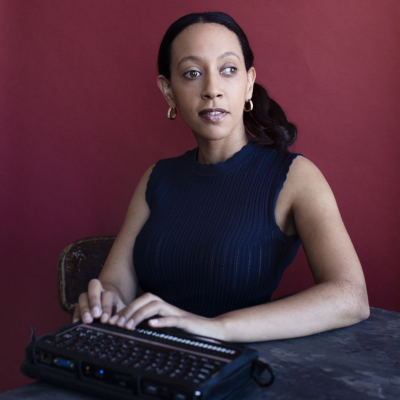
Opening Doors Through Law
Haben Girma, the first Deafblind graduate of Harvard Law School, has built a career advancing disability rights worldwide. After studying at Lewis & Clark College and Harvard, she became a celebrated advocate and speaker, showing how technology, creativity, and accessible learning environments break barriers. Her story proves that when higher education makes inclusion a priority, it cultivates leaders who fight for justice and equity.
Alice Wong
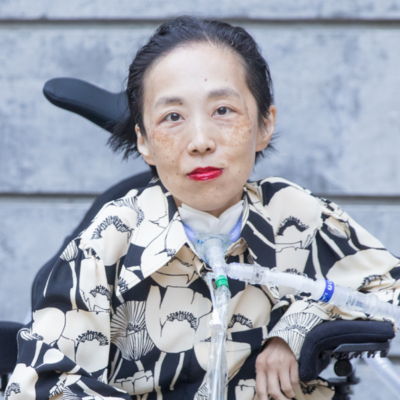
Amplifying Disabled Voices
Alice Wong, a writer and activist with spinal muscular atrophy, has turned storytelling into a tool for social change. She earned a BA in English and Sociology from Indiana University and an MA in Medical Sociology from the University of California, San Francisco. Wong founded the Disability Visibility Project, which collects and shares narratives from disabled people across the U.S. Through books, podcasts, and activism, she highlights the importance of accessibility and inclusion. Her work demonstrates how higher education and accessible platforms fuel leadership in cultural and political movements.
Wanda Díaz-Merced
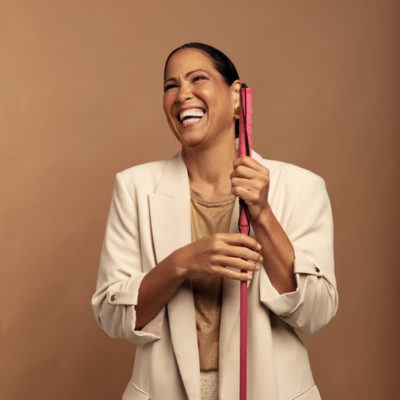
Listening to the Stars
Wanda Díaz-Merced, a blind astrophysicist from Puerto Rico, turned what many considered a barrier into an innovation. Losing her sight in her 20s did not stop her from pursuing her passion for space. She earned her Ph.D. in Computer Science from the University of Glasgow and pioneered the use of sonification—translating data into sound—to study gamma-ray bursts and solar activity. Today, her work allows both sighted and blind scientists to experience astronomical data in new ways. Her story shows how accessible tools in education and research create breakthroughs that benefit everyone.
Christine Sun Kim
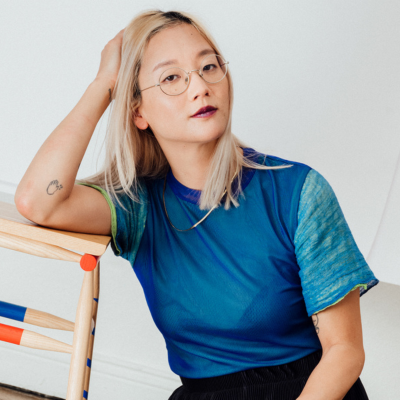
Redefining Sound
Born Deaf, Christine Sun Kim is a sound and performance artist who reshapes how we think about sound and communication. She earned her MFA from the School of Visual Arts in New York, where accessible learning environments supported her development as an artist. Kim’s work, which explores sound through visual and social dimensions, has been exhibited at the Whitney Museum, Tate Modern, and international venues. By challenging assumptions about who “owns” sound, she demonstrates how accessible education fosters leaders who change cultural conversations.
Judy Heumann
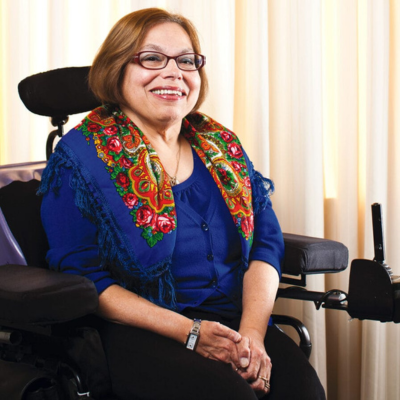
The Mother of Disability Rights
Judy Heumann contracted polio as a child and used a wheelchair throughout her life. Denied access to school at first, she later earned a BA from Long Island University and a Master’s in Public Health from UC Berkeley. She became a key leader in the disability rights movement, helping secure landmark legislation like Section 504 of the Rehabilitation Act and the Americans with Disabilities Act. Her advocacy, grounded in education and fueled by accessible opportunities, transformed society. Heumann’s story is a reminder that accessibility in education empowers voices that reshape laws and expand human rights.
Vilissa Thompson
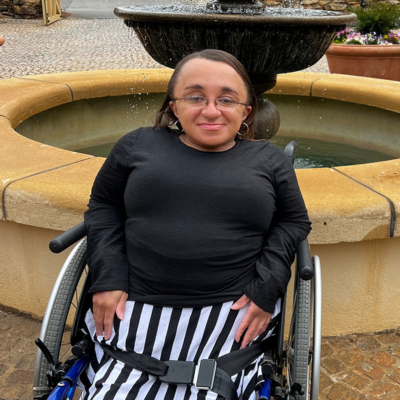
Centering Disability Justice
Vilissa Thompson, a social worker with osteogenesis imperfecta, earned her MSW from Winthrop University. As the founder of Ramp Your Voice!, she amplifies the experiences of Black disabled women and advances disability justice. Thompson combines her professional training with personal experience to educate, advocate, and build community. Her journey underscores how equitable access to higher education nurtures voices that challenge systems of exclusion and build more just societies.
Robert Davila
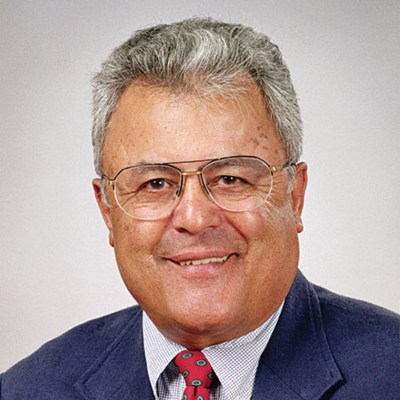
A Life of Service in Education
Robert Davila, who became Deaf from spinal meningitis as a child, overcame barriers to education to earn his Ph.D. in Education from Syracuse University. He went on to serve as Assistant Secretary for Special Education and Rehabilitative Services under the U.S. Department of Education and later as President of Gallaudet University. Davila’s leadership in policy and education demonstrates how accessible higher education paves the way for disabled scholars to shape institutions and serve the public good.
Chuck Close
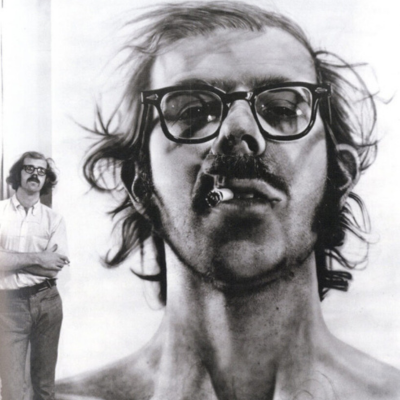
Painting Beyond Barriers
Chuck Close, one of the most influential American painters of the late 20th century, lived with prosopagnosia (face blindness) and later became paralyzed after a spinal artery collapse. He earned a BA from the University of Washington and an MFA from Yale University. Close pioneered large-scale, photorealistic portraits that redefined contemporary portraiture. Even after paralysis, he adapted his painting techniques with accessible tools. His career illustrates how access to higher education and creative adaptation enable disabled artists to shape modern culture.
Simi Linton
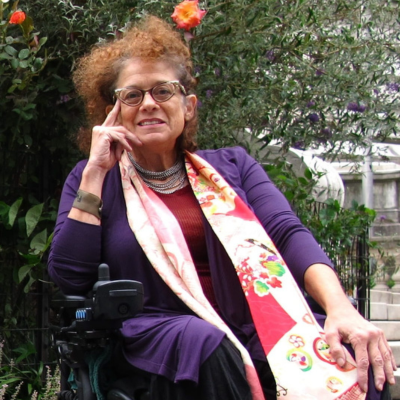
From Scholar to Advocate
Simi Linton became disabled as a young adult and redirected her path toward activism and scholarship. She earned a BA in Psychology from City College of New York and a Ph.D. in Counseling Psychology from New York University. Linton became a leading voice in disability studies, bridging academia and activism. Through her teaching, writing, and consulting, she influenced policy and media representation. Her story shows how accessible higher education nurtures leaders who transform culture and expand equity.
Lennard J. Davis
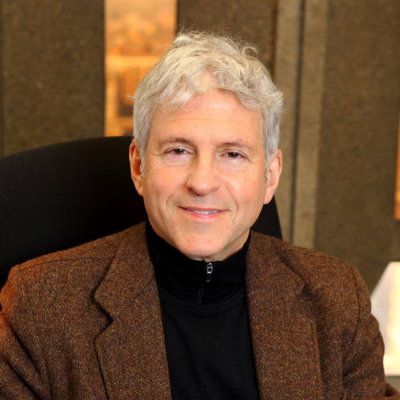
Expanding Disability Studies
Hard of hearing since childhood, Lennard J. Davis became one of the most influential scholars in disability studies. He earned his BA and Ph.D. at Columbia University and went on to teach English and Disability Studies at the University of Illinois at Chicago. Davis’ work bridges literature, culture, and disability theory, helping to establish disability studies as a recognized field of academic inquiry. His journey highlights how accessibility in higher education equips thinkers to create new knowledge and shape how society understands disability.
Donna Strickland
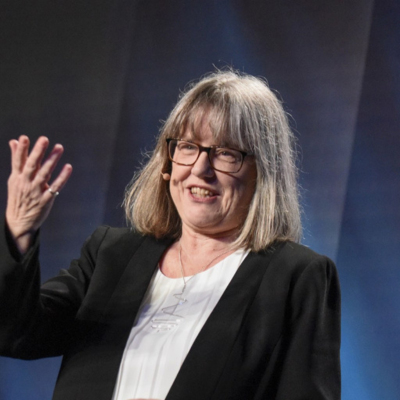
A Nobel Achievement
Donna Strickland, a physicist with a vision impairment, earned her Ph.D. in Physics from the University of Rochester. In 2018, she won the Nobel Prize in Physics for her work on high-intensity, ultra-short laser pulses, becoming one of only a handful of women Nobel laureates in the field. Strickland’s research has applications in eye surgery and medical technology. Her story demonstrates how supporting disabled students in STEM ensures that groundbreaking discoveries can emerge from diverse perspectives.
Alexandra Elbakyan
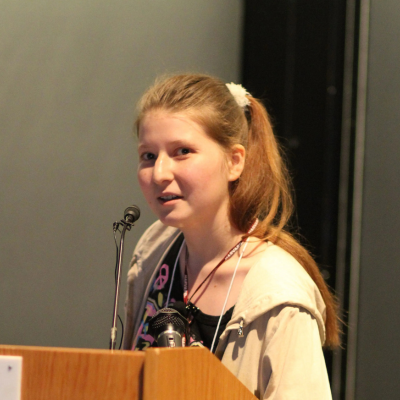
Opening Access to Knowledge
Alexandra Elbakyan, a programmer with a visual impairment, earned her master's in computer science. She became internationally known as the founder of Sci-Hub, a controversial but impactful project that challenged barriers to access in academic publishing. By using technology to expand the availability of scientific knowledge, Elbakyan has influenced global conversations about equity in education and research. Her path underscores how disabled innovators leverage higher education to push for systemic change.
Johnnie Lacy
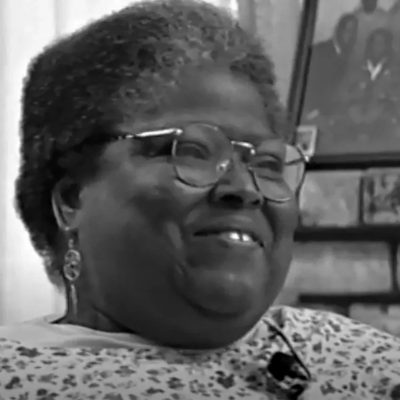
Voice for Disability Rights
Johnnie Lacy contracted polio as a child and used a wheelchair throughout her life. She earned her degree in Speech Pathology from San Francisco State University, where she experienced exclusion but refused to be silenced. Lacy became a powerful advocate for independent living and disability rights, eventually leading the Community Resources for Independent Living center in California. Her story illustrates how access to higher education not only empowers individual growth but also builds leaders who transform communities.
Updated: September 19, 2025